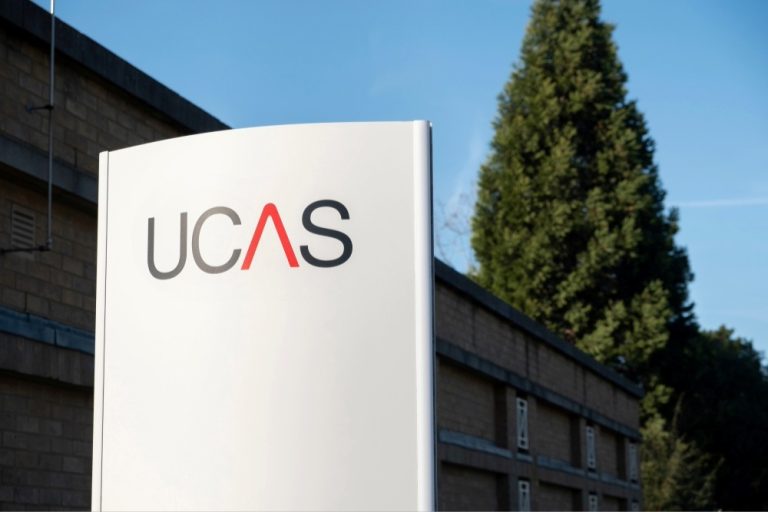Applications to nursing and midwifery degree courses in the UK have fallen for a fourth consecutive year, according to the first data released by the Universities and Colleges Admissions Service (UCAS) for the 2025-26 academic year.
Compared to this time in 2024, the number of people applying to study nursing in the UK fell by 2%, from 31,100 to 30,550. This represents a 34% fall since 2021, when the figure stood at 46,040.
“Ministers must launch an urgent, fully funded student recruitment campaign this spring to turn this situation around before September’s intake”
Nicola Ranger
Nurse applicants in England fell by the highest proportion of any individual UK nation between 2024 and 2025, from 24,680 to 23,730, or 4%. Scotland also saw a very small – 2% – fall from 4,650 to 4,560, while the figure in Northern Ireland rose 4% from 2,260 to 2,350.
Wales, meanwhile, saw its second increase in nursing degree applications year-on-year in a row, with 14% more people applying this year compared to last year, a rise from 3,050 to 3,480.
This comes, however, shortly after the news that Cardiff University, one of Wales’ largest nurse degree providers, plans to scrap all nursing courses.
Nationally, the number of people applying to study midwifery also declined for the fourth year in a row, with a 0.4% decrease between 2024 and 2025, from 7,740 to 7,710.
The fall in applications for nursing courses runs contrary to the general trend in higher education seen in the UCAS figures, which showed an overall increase in applicants by 1% since 2024.
However, age group trends are similar, with a decline in mature applicants and an increase in 18-year-old applicants seen across both.
The number of mature applicants – aged 21 and over – to nurse degree courses declined from 15,210 in 2024 to 13,810 in 2025.
Meanwhile, the number of 18-year-old seeking to study nursing increased slightly, from 9,610 to 10,200.
Royal College of Nursing (RCN) general secretary and chief executive Professor Nicola Ranger described the fall in applications since 2021 as “devastating” and a “hammer blow” to the government’s plans to reform the NHS.

Nicola Ranger
The 2023 NHS Long Term Workforce Plan, an updated version of which is due to be published this summer, included lofty targets for increasing the number of nurses and midwives being trained in the UK.
However, since the plan was published, there has been no significant increase in the number of nursing and midwifery students being trained on degree courses.
Professor Ranger said of the UCAS data: “These figures are devastating for the nursing profession and a hammer blow for the government’s planned NHS reforms.
“Health services are battling with thousands of unfilled nurse jobs, and the horizon looks bleak – the numbers choosing nursing in England have plunged to a record low.
“The government needs to urgently grip this workforce crisis. Ministers must launch an urgent, fully funded student recruitment campaign this spring to turn this situation around before September’s intake.”
The RCN boss blamed the continued decline in interest in the degrees on a “broken model of education funding”, which she said “impoverishes students and saddles them with debt”.
She added: “Low starting salaries [for nursing] make a bad situation worse. This further student decline is dangerous for patient care.
“The government must take the opportunities this year to introduce a loan forgiveness model for those who commit to working in the NHS and public services, alongside universal, uplifted maintenance grants for nursing students.”
Today’s UCAS figures are accurate as of 29 January, which is known as the ‘equal consideration deadline’, and typically accounts for around 80% of applicants for a given year’s cycle.
However, the situation could still change between now and the final clearing deadline in the autumn.
A fall in applications by this time last year preceded a slight increase in student nurses accepting an offer by the final deadline, and therefore joining a course, according to UCAS figures in December 2024.
A Department of Health and Social Care spokesperson said: “We hugely value the vital work NHS staff carry out every day, and we want to make sure anyone who wishes to pursue a career in healthcare can do so.
“We inherited a broken NHS, where staff have been undervalued and demoralised for years. We have raised pay, ended strikes, and are determined to work with staff to rebuild our NHS together.
“This summer we will unveil a refreshed workforce plan, so the NHS has the right people in the right places to give patients the care they deserve.”

